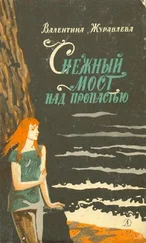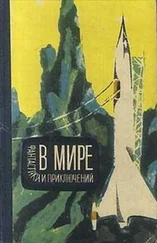Валентина Журавлева - Stone from the Stars
Здесь есть возможность читать онлайн «Валентина Журавлева - Stone from the Stars» весь текст электронной книги совершенно бесплатно (целиком полную версию без сокращений). В некоторых случаях можно слушать аудио, скачать через торрент в формате fb2 и присутствует краткое содержание. Жанр: Фантастика и фэнтези, на английском языке. Описание произведения, (предисловие) а так же отзывы посетителей доступны на портале библиотеки ЛибКат.
- Название:Stone from the Stars
- Автор:
- Жанр:
- Год:неизвестен
- ISBN:нет данных
- Рейтинг книги:4 / 5. Голосов: 1
-
Избранное:Добавить в избранное
- Отзывы:
-
Ваша оценка:
- 80
- 1
- 2
- 3
- 4
- 5
Stone from the Stars: краткое содержание, описание и аннотация
Предлагаем к чтению аннотацию, описание, краткое содержание или предисловие (зависит от того, что написал сам автор книги «Stone from the Stars»). Если вы не нашли необходимую информацию о книге — напишите в комментариях, мы постараемся отыскать её.
Stone from the Stars — читать онлайн бесплатно полную книгу (весь текст) целиком
Ниже представлен текст книги, разбитый по страницам. Система сохранения места последней прочитанной страницы, позволяет с удобством читать онлайн бесплатно книгу «Stone from the Stars», без необходимости каждый раз заново искать на чём Вы остановились. Поставьте закладку, и сможете в любой момент перейти на страницу, на которой закончили чтение.
Интервал:
Закладка:
Valentina Zhuravleva
Stone from the Stars
Five hundred years ago a meteorite fell not far from the German town of Enzisheim on the Upper Rhine. The townsfolk chained it to the wall of their church so that the gift of heaven might not be withdrawn, and on it they engraved the inscription: "Many know much about this stone, everyone knows something, but no one knows quite enough."
Often as I think of the history of the Pamir meteorite I recall this old inscription. Yes, I know a great deal about it, more perhaps than anyone else, but by no means all. Yet the main facts about this remarkable phenomenon stand out all too clearly in my memory.
It was six months ago that the first news of the meteorite appeared in the papers-a brief item to the effect that a large meteorite had fallen in the Pamirs. My curiosity was aroused at once.
One would think that the falling of a meteorite would hardly be of interest to a biochemist. We biochemists, however, eagerly watch for every report of meteorites, for these fragments of "heavenly stones" can tell us a great deal about the origin of life on Earth. In short, we study the hydrocarbons found in meteorites.
The next newspaper report about the Pamir meteorite announced that an expedition had located it and had brought it down by helicopter from an altitude of 4„000 metres. It was a huge chunk of stone about three metres long and weighing over four tons.
I had just finished reading the item, making a mental note to call up Nikonov about it in the morning, when the telephone rang. It was Nikonov.
Before I go any further let me say that Yevgeny Nikonov, whom I had known from my school days, was a man of extraordinary self-possession and restraint. I never remember seeing him rattled or upset. But now, as soon as he began speaking, I could tell that something out of the ordinary had happened. His voice was hoarse, his speech so incoherent that it took me some time to understand what he was saying.
All I could make out was that I must come at once, instantly and without delay, to the Institute of Astrophysics.
I called a car and in a few minutes was speeding through the quiet and deserted streets. A fine drizzle was falling and the coloured lights of neon advertisements and signs were mirrored in the wet pavements. As I drove through the sleeping city I thought of all those who were not sleeping at this late hour, of those who at their microscopes, test-tubes and notebooks filled with long rows of formulas, were intently searching for new knowledge. I thought of all the discoveries that were being made, changing the pattern of life and opening new vistas to the wondering gaze of man.
The tall building of the Institute of Astrophysics was ablaze with lights. It occurred to me that perhaps the Pamir meteorite might have something to do with all this activity, but I dismissed the thought. What could there be so unusual about a meteorite to cause such a flurry?
The institute hummed like a hornets' nest. People were rushing up and down the corridors with an air of suppressed excitement. Animated voices could be heard issuing from half-open doors.
I went straight to Nikonov's office. He met me in the doorway. I must admit that until that moment I had not attached much importance to this night summons. After all, we scientists are apt to exaggerate our successes and failures. I myself have often wanted to shout from the housetops when, after endless experiments, I have at last achieved some long-awaited result.
But Nikonov... One had to know the man as well as I did to realize how shaken he was.
He shook my hand in silence and with that quick, nervous, wordless handshake some of his excitement was communicated to me.
"The Pamir meteorite?" I asked.
"Yes," he replied.
He pulled out a heap of photographs and spread them out in front of me. They were photos of the meteorite. I examined them carefully, hardly knowing what to expect, although by now I was prepared for something extraordinary.
However, the meteorite looked exactly like dozens of others I had seen both in life and on photos: a spindle-shaped chunk of what appeared to be porous stone, with fused edges.
I handed the photos back to Nikonov. He shook his head and said in a strange, muffled voice:
"This is not a meteorite. Under the stone covering is a metal cylinder. There is a living creature inside that cylinder."
Looking back at the events of that memorable night I am surprised that it took me so long to grasp the meaning of Nikonov's words. Yet it was simple enough, although the very simplicity of it made the whole thing seem so unreal, so fantastic. The meteorite turned out to be a space ship. The outer stone envelope, which was only about seven centimetres thick, served as a shield for a cylinder made of some heavy dark metal. Nikonov presumed (as was later confirmed) that the stone shield was designed to serve as protection against meteorites and to prevent overheating. What I had mistaken for porousness of the stone were indentations made by meteorites. Judging by the vast number of them the space ship must have been many years on the way.
"If the cylinder were solid metal," said Nikonov, ilit would weigh no less than twenty tons. As it is, it weighs a little more than two. There are some fine wires attached to it in three places. They are broken, which suggests that some apparatus outside the cylinder was torn off during the fall. A galvanometer connected to the broken ends of the wires registered weak electrical impulses."
"But why are you so certain that there is a living being inside the cylinder?" I objected. "Most likely it is some automatic device."
"No, it is alive," he answered quickly. "It knocks."
"Knocks?" I echoed puzzled.
"Yes," Nikonov's voice was trembling. "When you approach the cylinder whoever is inside starts knocking. It seems to be able to see in some way..."
The phone rang. Nikonov snatched up the receiver. I saw his face change.
"The cylinder has been subjected to ultrasonic tests," he said, laying the receiver down slowly. "The metal is less than twenty millimetres thick. There is no metal inside..."
It struck me that there was something faulty in Nikonov's reasoning.
"Surely," I objected, "a cylinder less than three metres long and about 60 centimetres in diameter is hardly large enough to accommodate a living creature, let alone the water, food and diverse air conditioning apparatus required."
"Wait," said Nikonov. "In about fifteen minutes we shall go and see for ourselves. I am waiting for someone else. The cylinder is being installed in a sealed chamber."
"But you must admit your assumption is a bit fantastic," I persisted. "There can't be any human beings inside."
"What exactly do you mean by human beings?"
"Well, thinking creatures."
"With arms and legs?" For the first time Nikonov smiled.
"Well, yes," I replied.
"No, of course, there are no beings like that in the space ship," he said. "But there are thinking beings nevertheless. What they look like is hard to say."
I could not agree. I reminded him how Europeans, prior to the epoch of the great geographical discoveries, had imagined the inhabitants of unknown lands. They had pictured men with six arms, men with dogs' heads, dwarfs, giants. And they found that in Australia and in America and in New Zealand people were made exactly as in Europe. The same conditions of life and laws of development lead to identical results.
"Precisely," Nikonov said. "But what makes you think we are dealing here with conditions of life similar to ours?"
I explained that the existence and development of the higher forms of proteins is possible only within narrow margins of temperature, pressure and radiation. Hence the evolution of the organic world may be said to follow similar patterns everywhere.
Читать дальшеИнтервал:
Закладка:
Похожие книги на «Stone from the Stars»
Представляем Вашему вниманию похожие книги на «Stone from the Stars» списком для выбора. Мы отобрали схожую по названию и смыслу литературу в надежде предоставить читателям больше вариантов отыскать новые, интересные, ещё непрочитанные произведения.
Обсуждение, отзывы о книге «Stone from the Stars» и просто собственные мнения читателей. Оставьте ваши комментарии, напишите, что Вы думаете о произведении, его смысле или главных героях. Укажите что конкретно понравилось, а что нет, и почему Вы так считаете.








